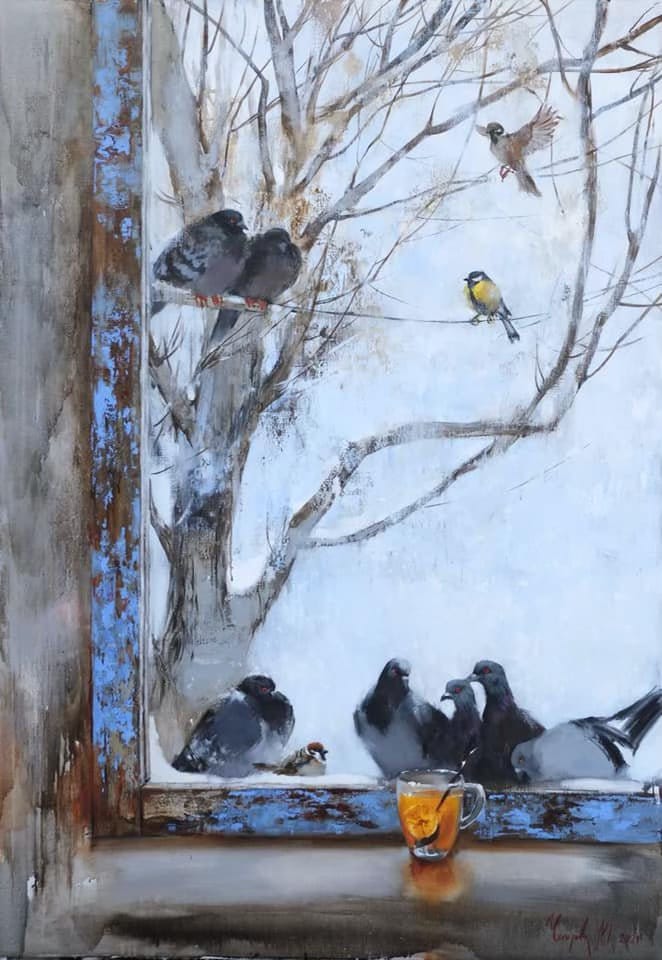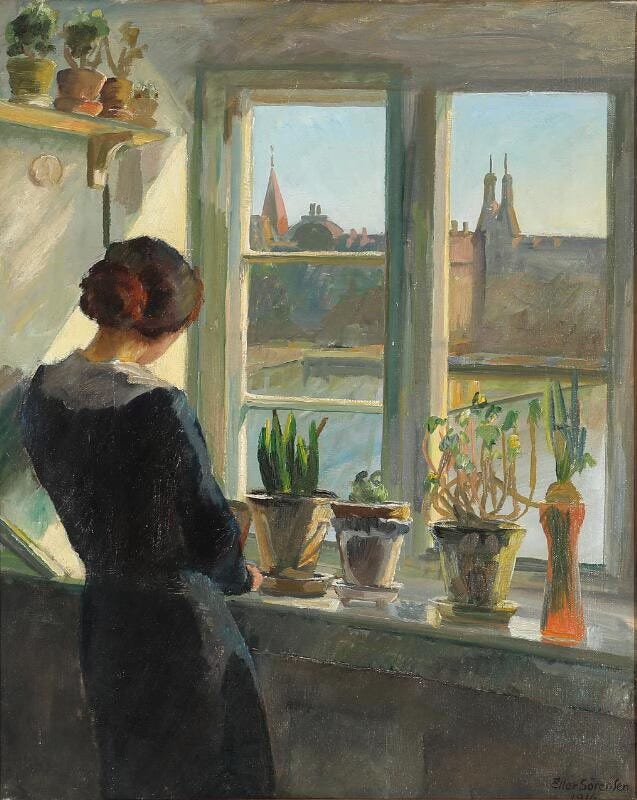An Introverted Parent's Search for Alone Time
and the unexpected place she found it

Are you a parent who adores your children, while also craving more alone time than you can get? My kids are near-grown, so if anything I now have the opposite issue—but I remember those days well.
Today, we’re honored to feature a guest post from Stephanie Duncan Smith, a senior editor at HarperOne, the creator of the Substack newsletter SLANT LETTER for writers, and the author of the recently released book, “Even After Everything: The Spiritual Practice of Knowing the Risks and Loving Anyway”. A friend once told Stephanie: “When I became a parent, I found whole new rooms in the house.” After ten years of chosen childlessness with her partner, and a lifetime practice of introversion, Stephanie became a parent and found this to be true—including some rooms in the house where she wanted to hide, and keep to herself more than ever.
Here’s Stephanie:
“My daughter’s December birthday coincided with the peak of pandemic cases and death in our city. She was desperately wanted—we had lost our first pregnancy, and the shock and grief awakened a want in me that I had never before recognized in myself. In the high vigilance of my pandemic pregnancy, it was the marvel of my life that she was now here—safe and held. Her presence was a magnetic force, so strong for one so small.
In the first forty days postpartum, midwives call it the “Motherbaby.” In these early days, the borderlines between the two are blurred. Our postpartum era was a winter cocoon, and our bodies were in constant communion—together for warmth, for milk, for sleep. Even our nervous systems co-mingled, as newborns learn to match the breath pattern of their mothers. This togetherness was everything I had hoped for. And in its intensity, there was also a felt loss—I was no longer certain I belonged to myself.
Babies are born with a grasping reflex so strong they can hold themselves up with one hand. Their need is that great, that insatiable. And you are the one for which they grasp, again and again. This can be a lot for anyone, perhaps especially those who identify as introverts—requiring time, physical space, and solitude for renewing introspection. How was I to remember who I was before the loaded new name of “mom” became mine? How was I to preserve some sense of voice and agency, even as I wanted to give her everything?

My friend Erin Lane turned me on to the idea of practicing personhood in parenthood, which I understand as the active affirmation of mutual belonging as well as healthy self-differentiation. I find this especially critical for those, like me, who have been long conditioned to the idea that it is a mother’s job to be selfless—less a self, void of self, estranged from oneself. I cannot think of a more distasteful proposition for introverts, whose wellbeing relies on a rich inner life. Nor can I believe losing oneself is healthy for our children. Rather, I believe the call is to be the most grounded, sustained, present, whole, wise self you can be, so that you can connect and give from that place of strength, rather than from a place of depletion.
For me, writing became my practice of personhood in the midst of new parenthood. Writing from my first-person perspective helped me stay with my voice, and by staying with my voice, I was able to stay with myself.
When you’re a parent, time is always remnant. The perfect writing conditions are a fever dream. I had to learn quickly not to despise the three-minute free-write. Mostly, I wrote with my thumbs—fragments, typos, chicken scratch that I punched out in my iPhone Notes from the rocking chair, the bed, my donut pillow. Shaping the words of authors has been my profession for fifteen
years as an editor, but this time, I wrote for myself. I wrote to give voice to what I was experiencing. I wrote to name everything I loved about my daughter and who I was becoming with her now in my life, as well as to lament my newfound limitations. And I wrote to keep record, recounting both the good and hard of these fleeting days, so that I could keep these memories with me for a lifetime.
Nearly four years and another kid later, I’m still writing. Those scrap paper sessions ultimately found their way into a book of my own, but what I’m most proud of—and what has been most sustaining—is showing up for myself when so much has been asked of me.
But you need not consider yourself a writer at all. The point of a reflective writing practice is not a polished creative piece or a published byline. The invitation is to stay connected with your voice amid the chaos and the noise of parenting, and stay in touch with the muscles of self-expression that
make you you.
I believe parenting is an act of witness. All children deserve to be seen for who they are and called into their unique personhood. As parents, we cannot offer something to our children that we are withholding from ourselves. The self-expression for which writing makes space may be a profound way for parents to give themselves the very gift they aspire to give to the ones they love most.
Seven consecutive words that you type with your thumbs during naptime or a nursing session is seven words of self-expression. That matters, no matter if no one else ever sees them. Write your joys, your frustrations, your questions. You deserve space to process. You deserve to witness your
life in all its becoming.
After many drafts and rewrites, I finally found a way to name the tension so many introvert parents feel. As I write in my book, “I wanted this baby. I wanted this togetherness. I wanted to still be me. And I didn’t want this to be too much to ask.”
Today, with a three-year-old and a one-year-old at home, my time is more remnant than ever, and I believe being you in parenthood is not too much to ask. God knows how much you put into supporting your kids’ practice of personhood, and what a wonder to witness who they are becoming.
You deserve to also witness yours. A three-minute free-write might just be a place to start.”
*
I hope you enjoyed Stephanie’s words. Would you like to share:
*If you’re a parent, whether you experienced these challenges along the way.
*Whether you’ve tried a three-minute free-write, or something similar?
*Any other thoughts and reactions you had to Stephanie’s piece?
You know we always love to hear from you (and from each other).




Oh so so recognisable. My eldest is 41. I remember as if it were yesterday that loss of self. I didn't have a writing practice then. I had no where to turn . I had an almost breakdown when my second child was born. It's raw and resurfaced when my grand daughter was born. Thankfully I could turn to an excellent therapist.
This topic was rarely spoken of back in the 80s. I really hope young women feel more supported now.
Thank you so much for sharing this ❤️
I did not find new rooms, but a new use for a room. The bathroom became my reading room, the place where I placed calls, and sometimes sorted mail (that I would collect on my own from the mailbox!). After facing said pressure to be available 24/7, I decided the best way to teach my kids about my need for space was to read a humorous children's book together. I discovered "Five Minutes Peace", by Jill Murphy. It is about a mother elephant, with younglings needing toast buttered, or an audience when practicing the bugle. It was fun to read and I felt like I had someone to relate to. It helped my kids to give grace when I would say, "Five minutes peace" --it was like sharing an inside joke and no feelings were hurt.